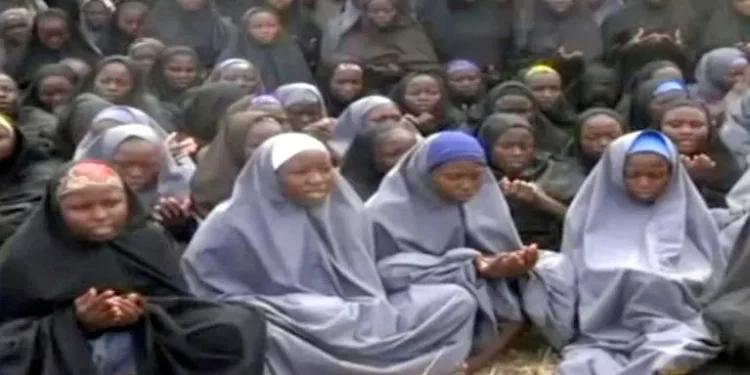As Nigeria marks the 10th anniversary of the abduction of Chibok girls on April 14, 214, the New Nigeria People’s Party (NNPP) has called on the federal government to have a rethink on how the remaining victims could be rescued and institute feasible measures to ensure that the country’s schools are safe for students to learn.
The party recalled that on this day in 2014, 276 girls were abducted in Chibok Government Secondary School, of which 89 were still not accounted for even as reports claimed some of them were married to their captors and others escaped or confirmed dead.
This situation, the NNPP said, remains a gruesome memory to the parents and relatives of the adopted girls as well as the entire country.
In a statement issued in Abuja by the party’s national publicity secretary, Ladipo Johnson, the NNPP said despite the global grief and condemnation which trailed the sad incident, there had been more abduction of school children, heightening the insecurity challenge in the country.
“The NNPP finds the situation very worrisome. Even as the trauma of the Chibok girls remains a huge tragedy, we have since witnessed more horrible incidents in school children kidnapping in our schools which is unfortunate,” Johnson said.
While acknowledging government’s efforts at rescuing some of the girls and others in similar cases, however, called on the government to further evolve measures that can help to locate and rescue the remaining girls from their captors and no matter their current circumstances.
Johnson further stated, “These girls must not be so forgotten. Many are still in captivity without any clear information about their situation.
“We can only appreciate the trauma and gruesome nature of their adoption and what they and their parents are going through even till now. This should count in the action of the government in particular and as a reflection of our common humanity.
“Yet, those rescued, how are they being rehabilitated? How are they fairing now? How effective, including the good idea of the “Safe School Programmes?”
“So, as we remember the agony of the Chibok girls at 10, the concern is how those still in captivity can be rescued, how the more than 20 million out-of-school girls can be tackled and indeed how the government can effectively make the recurring challenge of insecurity a thing of the past or at least drastically reduced in view of its effects on the nation’s socio-economic development.”



